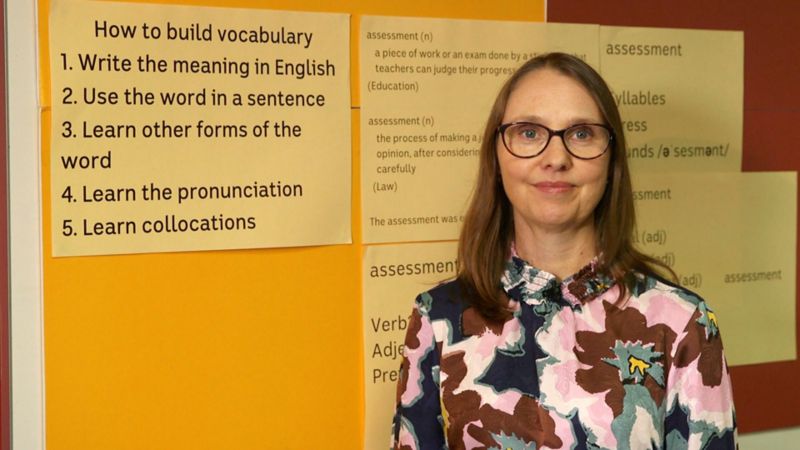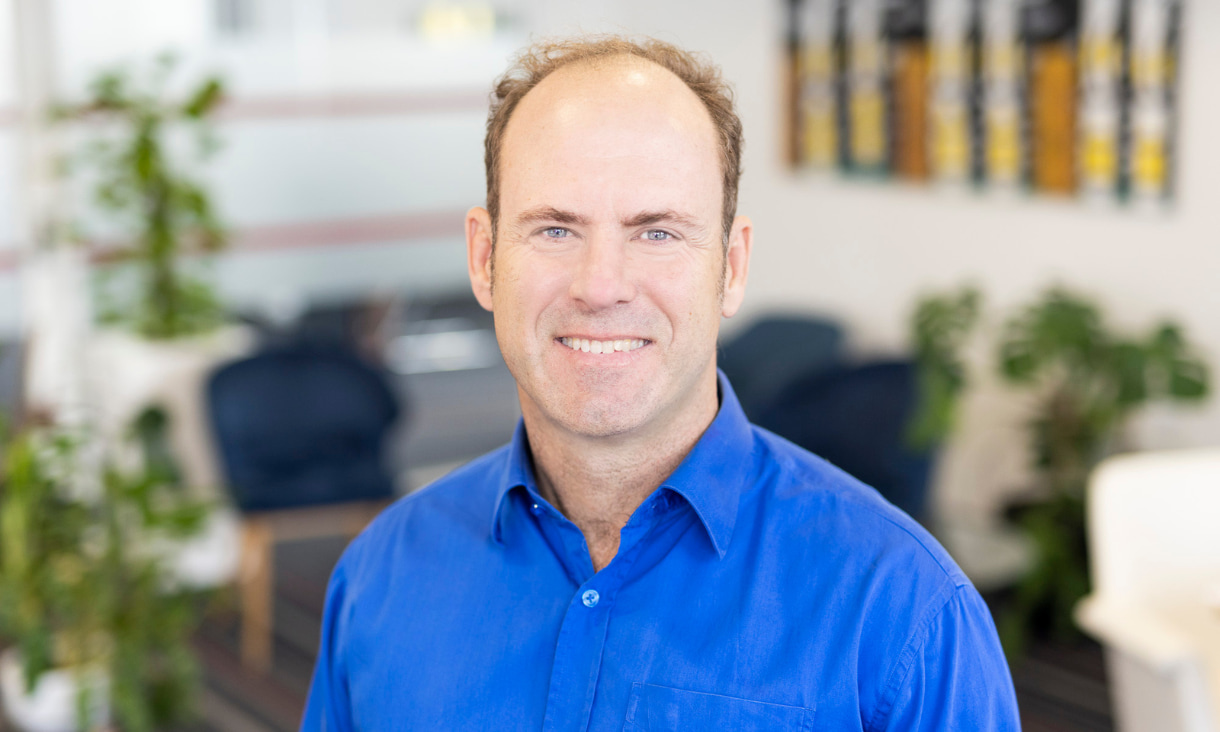Duration: 8:45
[Opening title] Talking with Jenny and Scott about their ABC Learn English lessons
[Additional information] This video features RMIT Training staff members individually sitting in their homes and speaking directly to their cameras.
Nick:
Hi, everyone, great to be with you all today and I'd like to welcome you all, and a special hello to Shivali Nayak, Senior Content Producer at ABC Education-Learn English. Shivali, tell us a little bit about this Academic English project.
Shivali:
Thanks Nick, so I'm part of the ABC Education team and I look after Learn English and Learn English is the ABCs English language learning service for anyone learning English as an additional language. So we recently produced and released a new program focused on English for academic purposes. The series is called Academic English, and it featured six Australian teachers who taught learners the important Academic English skills that they need in speaking, reading, writing, and listening to help them prepare for using Academic English at university. And two of the teachers that we worked with, Jenny Priest and Scott Clare, also on the chat today. So we had a really fun time and it was such a learning experience for all of us.
Nick:
So, Scott and Jenny, this is something that I guess for both of you is quite a new approach to teaching. You, of course, both really experienced in classroom teaching, whether that be face-to-face or online has been the case more recently, and clearly you're both very experienced and skilled there, that comes across wonderfully. And does you both great credit and I think it gives a sense of some of the wonderful teachers we have here at REW, but tell us a little bit about how it felt different for you, from your perspective as teachers in the limelight as it were, for these video lessons. Jenny, how did it feel for you?
Jenny:
Thanks Nick. Well, it was a little bit nerve wracking to be honest, being on camera with everybody focused on me, but it was a fantastic experience to work with Shivali. And even though it was nerve wracking, it was also exciting to actually go back into a classroom after working from home for over a year.
Nick:
Great, thank you. Scott, tell us about your experience in putting these programs together.
Scott:
Thanks, Nick. As Jenny said, it was quite a daunting experience. I think the challenge for me was that it was like teaching in a regular classroom except there weren't any students there, so I had to pretend that I was talking to a group of people, and in regular classroom there's a lot of interaction back and forth between the teachers and the students. So while the content was familiar, while all of the things that I was saying was very, very familiar, it was an unusual experience looking down the barrel of the camera, but it was really nice to see how education can be done in different ways.
Scott:
I also think that students could actually make it a little bit more interactive for themselves when watching by actually pausing and taking time to think about the things. So while we may have only waited a few seconds because we want to fit it into 10 minutes, I think some good advice for students would be actually to pause, rewind, take the time to think about things, have a go at doing some of the activities yourself, and then you can listen to the teacher and see what they have to say afterwards as well.
Nick:
That certainly makes a lot of sense and of course, pre-COVID students already have the option of accessing ABC Education-Learn English programs, but now I think they have an even more important role to play. What other ways do you think students can make use of this kind of lesson format? Jenny, what are your thoughts on that?
Jenny:
Well, yeah, I agree with Scott. I think probably a really good way is to stop and start it because we do ask a lot of questions throughout the process. Just to take your time to maybe think of an answer for that question before you continue to listen. But apart from this, there's just so much out there that students can make use of, but it does feel really nice to be a part of something. Like Shivali said to me, what you've created is going out to millions of people, which it does feel fantastic to be part of something like that.
Nick:
And very nerve wrecking too.
Jenny:
Yeah, absolutely.
Nick:
Once again, you both come across as hyper professional and it seems you've been doing it for years so well done to you. So Scott, tell us a little bit about the topics that you presented on or taught and how you think they can be applied to the academic setting and possibly beyond?
Scott:
The [inaudible 00:04:52] is to look at paragraphing with writing and making comparisons, as everyone will know, writing is a massive part of the academic world. A lot of students that do come to university here have studied in their own countries. However, the way we organize writing in different countries and different cultures can be quite different. So it's really important that students understand how they can put a piece of writing together in English. If they write a piece of writing in English, but with conventions for organization in their own language, it will be quite difficult to read for an English speaker.
Scott:
So that's something that's quite important to the university as well with making comparisons, it's something we do all day every day, so it's a big part of university, especially when you go into business, for example. So that's an important thing, but also those skills are really transferable in everyday life. While we might not all write academic essays every day, we have to write emails, we might need to read reports, we might need to read newspaper articles and understanding the basics of paragraph structure of any genre of writing, helps us to be better writers and also better readers in the language.
Nick:
Sure and I think a lot of those skills transfer to other skills such as speaking and listening.
Scott:
Yeah, absolutely.
Nick:
I would say as well. Thank you. Jenny, tell us about the topics you presented on and how you think they might be helpful to students going on to an academic future, but also outside of that context.
Jenny:
Absolutely, so I looked at academic vocabulary. So vocabulary is absolutely vital to build up your vocabulary if you want to be successful at university. If you don't have the vocabulary in your discipline, you won't be able to understand the lectures, you won't be able to write your essays, you won't be able to understand the articles that you need to read, so you must work on expanding your vocabulary. And then of course, if you want to continue to work in an English speaking environment or English speaking country, you will need that for when you give presentations, for surviving in your field, it's absolutely vital.
Jenny:
The other one that I looked at was describing data, which is often we think of it as a mathematical thing. But in fact, any field you might need to describe data, especially if you go into research or you're giving presentations on something, it's a really useful skill to have. Of course, it's also useful for the dreaded [inaudible 00:07:41] writing task one, but it does have use beyond that.
Nick:
So for example, a lot of business settings will involve discussions around data and presentations.
Jenny:
Absolutely.
Nick:
The description of sales graphs and so on. So yeah, I can really see a broader application there for language skills and content that you presented so well on.
Nick:
So thank you once again Shivali, Scott and Jenny for joining us today, it's been great speaking with you and it's been really wonderful getting your insights and hearing about your experience in the production and development of these wonderful video lessons. I'm sure everyone who watches them will get a lot out of them. And I'm really pleased once again, that you were able to come together to produce such wonderful programs. Thank you.








